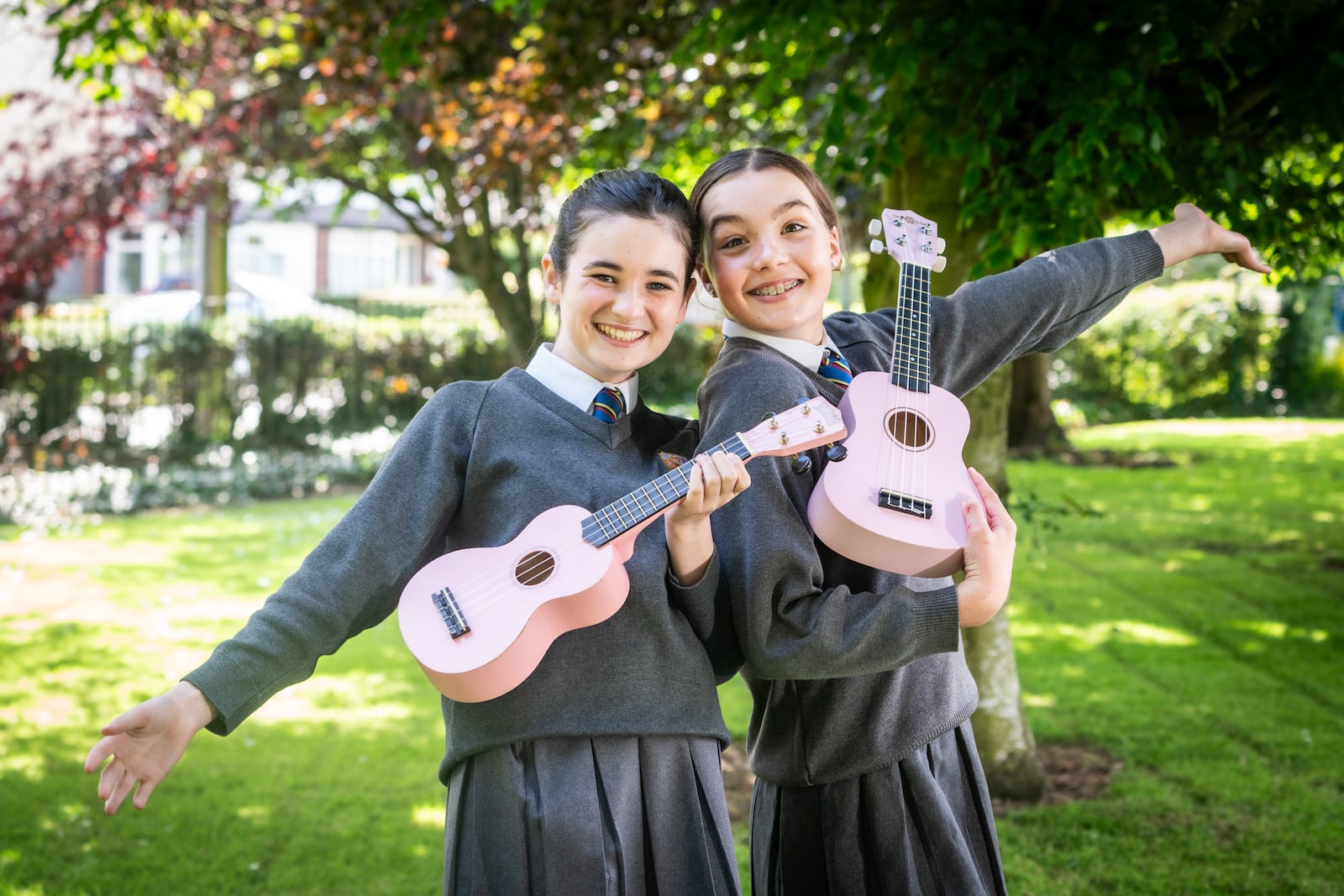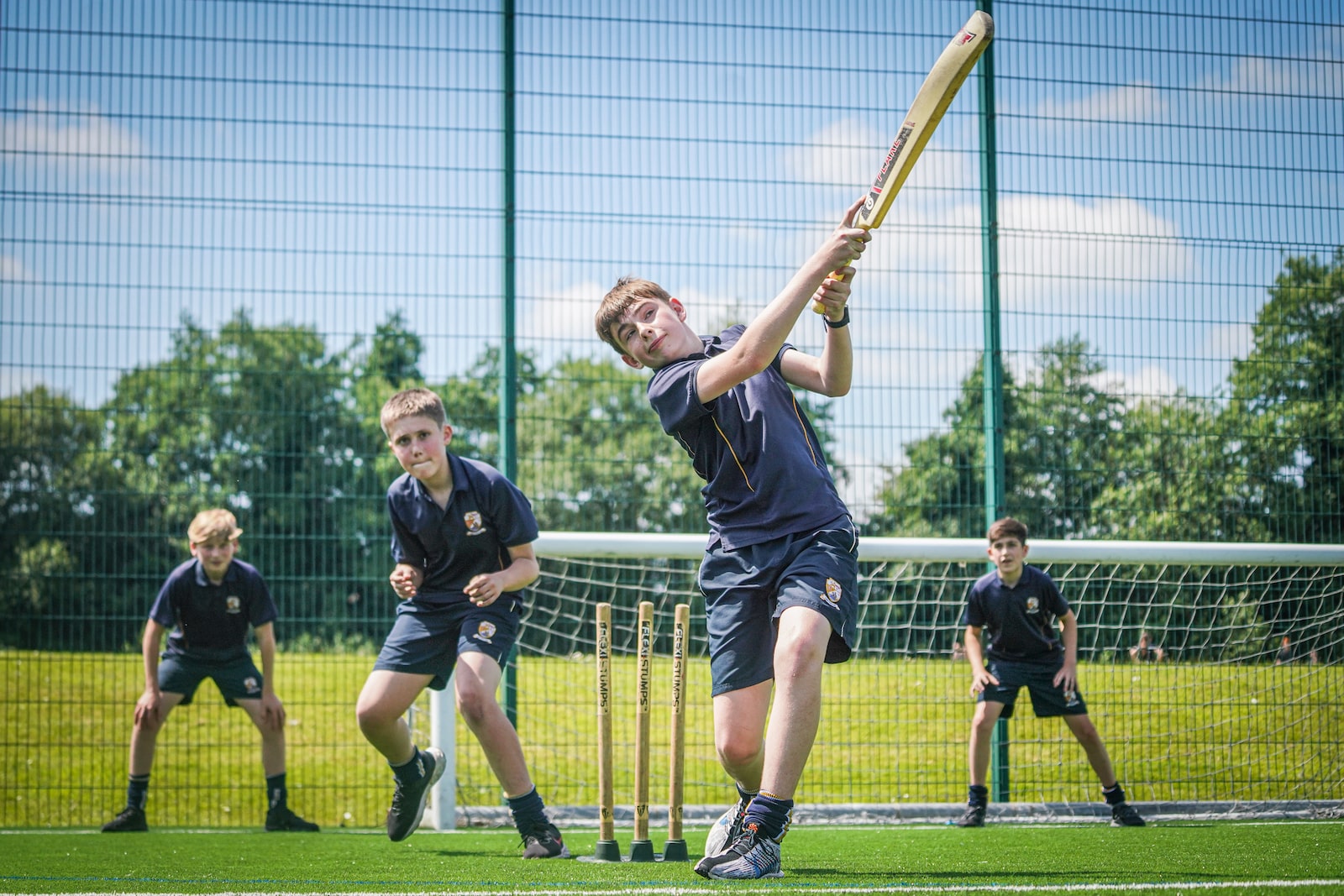Modern Foreign Languages (MFL) – French & German
The MFL Department at St Bede’s is ambitious, experienced and specialised. It has very high standards of teaching and learning and aims to create skilled, enthusiastic and independent language learners as well as educated global citizens.
We strive to cultivate a life-long love of languages by exploring together new and exciting cultures, interesting linguistics and by sharing the value and joy of communication.
Learning a foreign language is a liberation from insularity and provides an opening to other cultures. We want pupils to feel that the MFL experience at St Bede’s is rewarding and fun and to open their eyes to the wonderful world in which we live. We believe a high-quality languages education should foster pupils’ curiosity and deepen their understanding of the world. Pupils study a variety of topic areas as well as use authentic materials such as realia, literature and films as well as whole school events to enhance their Cultural Awareness and Intercultural Understanding.
Based on the Studio and Stimmt courses, our MFL curriculum incorporates grammar and vocabulary and focusses heavily on linguistic competence in order to inspire confidence in our language learners. We believe it serves for individual differences, abilities and interests and we endeavour to provide opportunities for all pupils to develop a high level of literacy and numeracy in MFL, preparing them for success in adult life. In lessons, students will use the four skills of Listening, Speaking, Reading and Writing. The curriculum at all key stages is underpinned by a mastery approach, equipping pupils with a foundation for continuing their education at A Level, learning different languages or to study and work in other countries.
Special Status
The MFL Department are delighted to have been awarded the prestigious status of a ‘Smart Choice: German School’ by the Goethe Institute in the summer of 2018. The institute is a German cultural association, which operates worldwide, promoting the study of the German language abroad and encouraging international cultural exchanges and relations. The Institute was founded and is funded by the German Government. We have received such an accolade as we have a firm commitment to the teaching and learning of German here at St Bede’s. German, together with French, has been taught here since our opening in 1957. We aim to do everything possible to make St. Bede’s pupils stand out from the crowd; by learning German, our pupils benefit from a broader and more ambitious curriculum. We also recognise the practical and economic reasons for studying German and want to convey this as much as possible to our pupils. As a small school, when so many of our neighbouring secondary schools study Spanish, it is wonderful that our passion for German has been recognised and we have received such an honour.
Thanks to our work with the Goethe Institute, we run an outreach programme, teaching German in four of our feeder primary schools on a weekly basis and have hosted numerous events, talks and competitions for our network members.
Department Structure
Both French and German are taught in the MFL Department, which are compulsory in Key Stage 3 and optional at KS4.
Each Year Group will study one language during their time at St Bede’s; the language offered to the new Year 7 cohort will change every year.
Key Stage 3 French
Throughout Key Stage 3, our Schemes of Work are loosely based on the ‘Studio’ course by Pearson, but with a greater focus on creating language and inspiring confidence, for example through Speaking activities, and increased learning about culture of the countries in which French is spoken. It is designed to ease transition from Primary to Year 7 and move every pupil’s learning at a faster pace, right through to Year 9. We believe Studio provides the right stimulation, challenge and enjoyment for our pupils. For Year 8 and 9 pupils, we also use tiered books (higher and foundation) in order to best cater for your child’s learning needs.
Key Stage 3 German
Our Scheme of Work has been created using the Pearson Stimmt Course, but with a greater focus on creating language and inspiring confidence in St Bede’s pupils, for example through Speaking activities, and increased learning about culture of the countries in which German is spoken. The Stimmt course is perfect for beginners and will push pupils to achieve their potential in the study of this new and exciting language. We believe Stimmt provides the right stimulation, challenge and enjoyment for our pupils. For Year 9 pupils, we also use tiered books (higher and foundation) in order to best cater for your child’s learning needs.
GCSE French and German
A GCSE language course is an excellent choice for pupils who enjoy communicating, exploring different cultures, and developing skills that open up global opportunities in education and employment.
At Key Stage 4, pupils follow the Pearson Edexcel GCSE (9–1) in French and Pearson Edexcel GCSE (9–1) in German. Over the two years, pupils build on the skills and knowledge developed at Key Stage 3, continuing to develop their ability to understand and use the language in a variety of contexts.
Pupils are assessed in the four key skill areas — listening, speaking, reading and writing — each contributing equally to the final GCSE grade. There are two tiers of entry: Foundation (grades 1–5) and Higher (grades 4–9). The most appropriate tier is decided in Year 11, following careful discussions between pupil, home, and school.
We use the Pearson 2024 GCSE French and German textbooks, designed to support the new specification and to ensure pupils are well-prepared for the demands of the course.
Course Overview
The Pearson Edexcel GCSE courses in French and German share identical content and structure. Students study the following five themes, which provide a rich and engaging framework for developing linguistic skills and cultural understanding:
Theme 1: Identity and culture
Theme 2: Local area, holiday and travel
Theme 3: School
Theme 4: Future aspirations, study and work
Theme 5: International and global dimension
Why Study a Language at GCSE?
Studying a modern foreign language helps pupils to become confident communicators and to appreciate the world from different cultural perspectives. It fosters transferable skills such as problem-solving, creativity, and adaptability — all of which are valued by employers and higher education institutions.
A GCSE in French or German provides an excellent foundation for further study at A level and beyond, as well as for careers in fields such as business, tourism, education, translation, law, and international relations.
In MFL, we promote Catholic Social Teaching in both broad and very specific ways. We promote the dignity of the human person by recognising all students learn in different ways and styles and our French and German curriculum is designed to be inclusive, supportive and challenging for all so that all students can reach their potential. More specifically, we study in detail the Option for the Poor and Vulnerable in our Key Stage 4 lessons looking at causes and solutions. Finally, we cover a range of environmental issues in both Year 9 and Year 11, meaning we can revisit these important issues and go deeper into our understanding as our pupils mature in their learning. Both of these methods ensure that MFL helps our pupils to live out their faith in the world.
We also host a variety of activities with outside agencies, such as the Onatti Theater Productions for Key Stage 3 and 4 French and German, visits from the Goethe Insititut, Alliance Française, visits from specialist European caterers so that pupils can taste authentic French and German foods, visits to Runshaw Sixth Form College and create a German Christmas Market for the whole school to enjoy.
These, along with regular competitions and in class events mean that the MFL calendar is busy, varied and exciting!
Our most precious resource is our Foreign Language assistant Frau/Madame Waterhouse who provides intervention, practice and support for every pupil in groups of up to 6 pupils on a weekly basis from KS3 and KS4. She also provides 1:1 intervention support and hosts revision sessions for our Year 11 pupils in groups and on a 1:1 basis at lunchtimes. These sessions of intervention, practice and exam technique help our pupils to succeed at Pearson Edexcel GCSE MFL exams as well as practise vocabulary and grammar in a fun and productive way for our KS3 pupils. To have the opportunity to practice skills and improve cultural awareness and knowledge at the same time through a speaking class is unusual, welcomed and a vital part of our enrichment provision at SBCHS.



